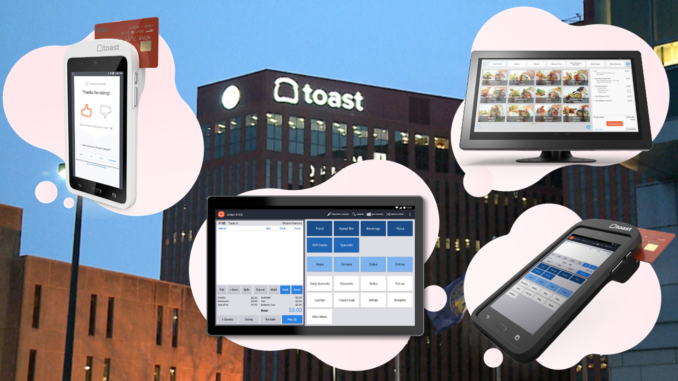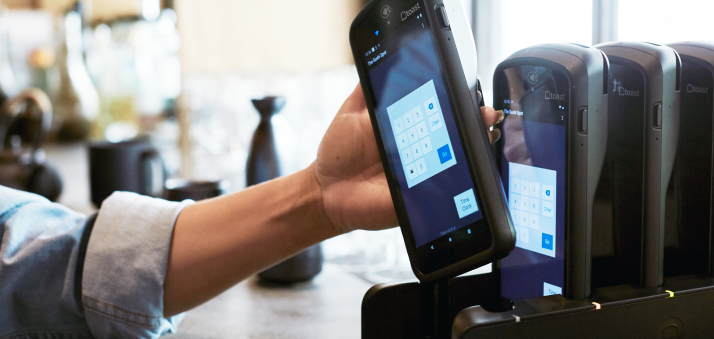
By RTN Staff - 2.23.2021
Restaurant technology solution provider Toast is gearing up for an initial public offering later this year, according to a report this week in the Wall Street Journal. The IPO would likely put the value of the company at roughly $20 billion, making it one of the largest offerings ever in the hospitality technology space.
The Boston-based company has reportedly tapped Goldman Sachs Group and JPMorgan Chase to underwrite the public listing. The IPO is not a done deal, however. Other possibilities, according to sources close to the matter, include a possible sale or a merger with a special interest acquisition company (SPAC), also known as a blank check company. SPACS have become popular in the last year as a way of bringing private companies public without going through the traditional IPO process.
Launched in 2013, Toast has grown both organically and through company acquisitions at a breakneck speed and has also rapidly expanded its partner network. The company’s dozens of technology integration partners provides restaurants of all sizes with new ways to improve the guest experience and streamline operations.
Like other solution providers in this competitive arena, Toast has been focused on helping restaurants of all sizes solve some of the industry’s most pressing challenges. Prior to the pandemic, those challenges revolved around attracting, engaging, and retaining guests. New guest marketing capabilities have enabled restaurateurs deliver highly personalized offers and campaigns triggered by guest behavior. New features and functionality were introduced on an ongoing basis to help restaurateurs simplify back-office operations and arm them with tools to recruit, hire, and retain talent in a competitive labor market.
Then came the public health crisis. This past year has been a rollercoaster ride for Toast. Like virtually every other player in the hospitality space working to manage through the pandemic, it has had to recalibrate its operations and innovate contactless platform capabilities aimed at helping restaurants increase order volume and check size.
In November, the company launched the next generation of its handheld Toast Go 2. Along with Toast Order & Pay — a platform that facilitates ordering and paying from the convenience and safety of a guest’s own smartphone — Toast Go 2 was designed to reduce unnecessary contact and streamlines service.

In April 2019, Toast raised $250 million in Series E funding at a $2.7 billion valuation. That investment helped Toast extend its platform capabilities and value-add services beyond point-of-sale and guest-facing technology.
Then, last February, Toast announced a $400 million Series F funding round to further fuel its quest to “empower restaurants of all sizes to compete on a level playing field with global brands.” The funding round took the company’s valuation to $4.9 billion.
The investment, which brought the total amount that the Boston-based company has raised to over $900 million over seven rounds, was led by Bessemer Venture Partners, TPG, Greenoaks Capital, and Tiger Global Management with participation from Durable Capital Partners LP, TCV, funds and accounts advised by T. Rowe Price Associates, G Squared, Light Street Capital, Alta Park Capital, and others.
In a move that surprised many, Toast laid off approximately half its employees, totaling almost 1,300 jobs, last April, just a couple months into the pandemic. Yet, by all accounts, the business has been prospering ever since, even during these challenging times. According to the company, Toast’s “customer community” grew to over 40,000 restaurant locations and recurring revenue increased by 70 percent in 2020. From March to December, Toast reportedly processed nearly 50 million guest orders through Toast digital ordering platforms. All told, nearly 25,000 locations adopted Toast’s new contactless technologies in 2020, according to the company.
Also worth a mention is the fact that Toast last year allowed current and former employees to sell up to 25% of their vested shares in a deal that valued the company at about $8 billion. If the company proceeds in its reported plan to go public later this year, it would likely result in one of the largest IPOs ever in the hospitality technology sector.

